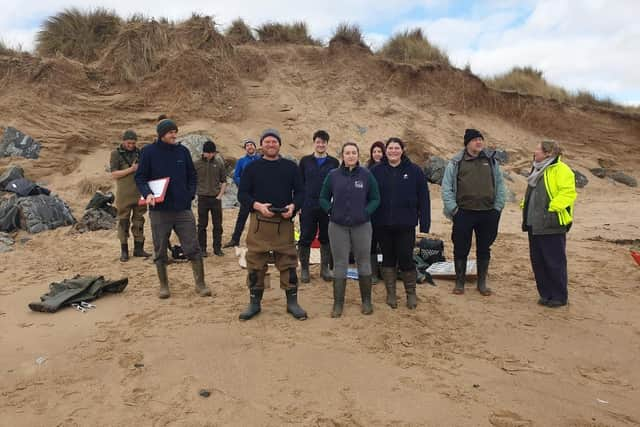How Hartlepool will play its part in ambitious project to reintroduce lost marine species to area
and live on Freeview channel 276
Tees Rivers Trust has begun a project to restore native oysters and seagrass which were once present in the estuary but were lost due to over exploitation and deteriorating water quality.
The trust says both species will enrich the ecosystem by creating habitat for fish and other marine species.
Advertisement
Hide AdAdvertisement
Hide AdAs part of the project, Tees Rivers Trust will be setting up an oyster nursery in Hartlepool Marina over the coming year.


A facility to collect oyster larvae, referred to as spat, and research seagrass seed collection will be developed in Hartlepool Dock on the Headland thanks to support from dock operators PD Ports.
The Trust has carried out a large amount of work in upstream parts of the Tees controlling invasive species and restoring habitats.
A recent £1million award from Defra’s Green Recovery Challenge fund has allowed the work to extend into the estuary.
Advertisement
Hide AdAdvertisement
Hide AdProgramme manager Judy Power said: "This landscape-scale project will begin restoring functioning intertidal and marine habitats to the Tees and improve passage for migratory fish species along the full river.”
The restoration of oyster and seagrass is part of the larger Fish for Tees Programme which is improving habitat and river connectivity from the source of the Tees to the sea.
The species were chosen due to the benefits they can provide. A single oyster can filter 150 litres of water a day and seagrass is a great absorber of carbon helping to protect the environment.
